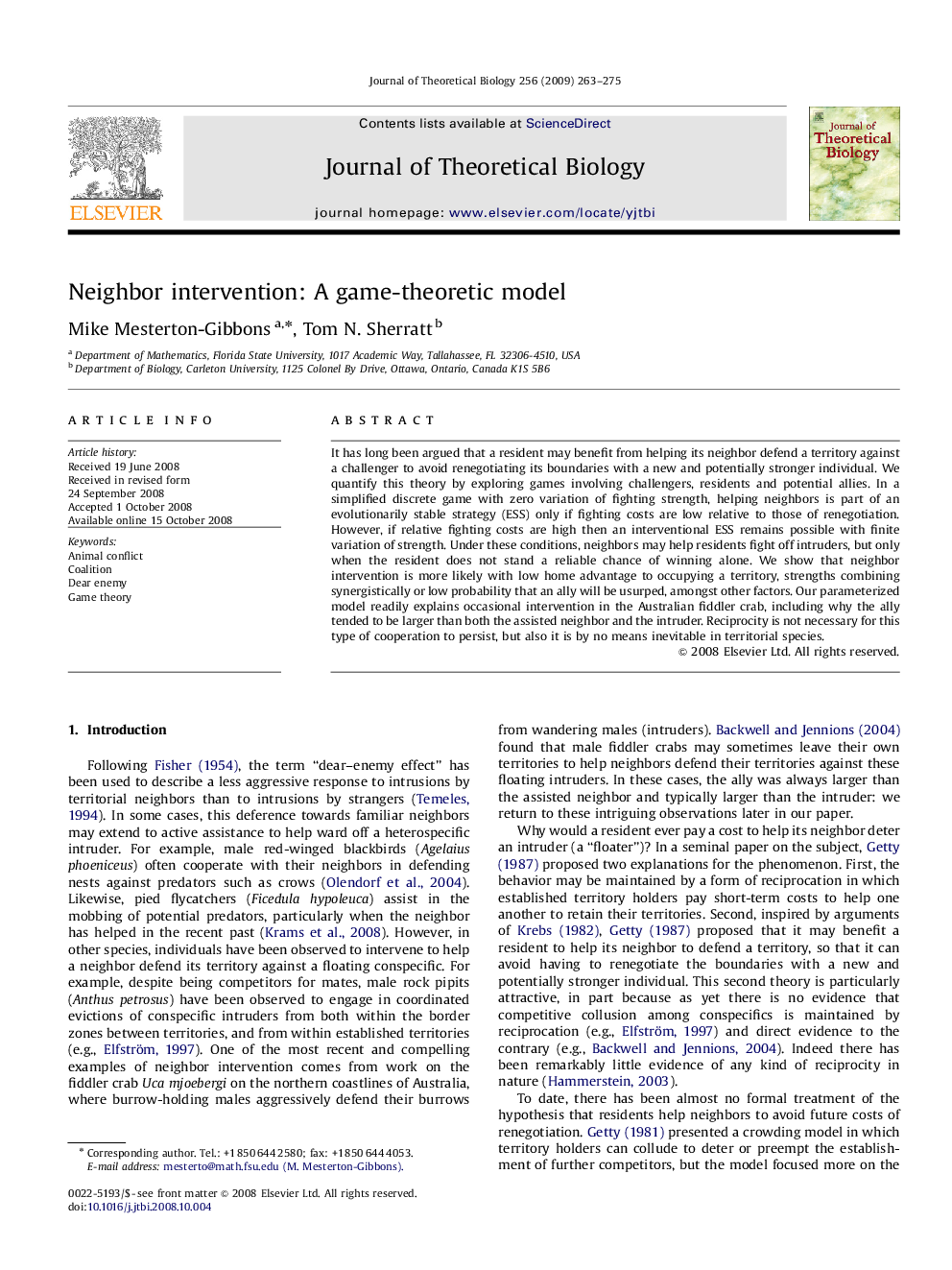| کد مقاله | کد نشریه | سال انتشار | مقاله انگلیسی | نسخه تمام متن |
|---|---|---|---|---|
| 4498259 | 1318973 | 2009 | 13 صفحه PDF | دانلود رایگان |

It has long been argued that a resident may benefit from helping its neighbor defend a territory against a challenger to avoid renegotiating its boundaries with a new and potentially stronger individual. We quantify this theory by exploring games involving challengers, residents and potential allies. In a simplified discrete game with zero variation of fighting strength, helping neighbors is part of an evolutionarily stable strategy (ESS) only if fighting costs are low relative to those of renegotiation. However, if relative fighting costs are high then an interventional ESS remains possible with finite variation of strength. Under these conditions, neighbors may help residents fight off intruders, but only when the resident does not stand a reliable chance of winning alone. We show that neighbor intervention is more likely with low home advantage to occupying a territory, strengths combining synergistically or low probability that an ally will be usurped, amongst other factors. Our parameterized model readily explains occasional intervention in the Australian fiddler crab, including why the ally tended to be larger than both the assisted neighbor and the intruder. Reciprocity is not necessary for this type of cooperation to persist, but also it is by no means inevitable in territorial species.
Journal: Journal of Theoretical Biology - Volume 256, Issue 2, 21 January 2009, Pages 263–275